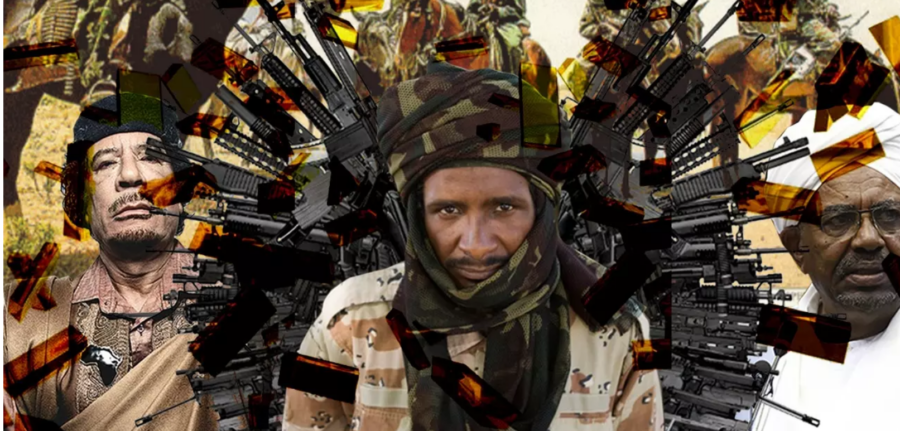First, If I may to clarify that wrongly many researchers confuse the fighters of the Arabic tribes that participated in Bashir’s wars against the rebels in South Sudan in the eighties, nineties, the Nuba Mountains and others, and they are called Al-Murahaleen (the interim ones) and the Janjaweed militias from the border Arabic tribes that move in the Sahara Desert and the western and northern border cities and in the Libyan desert, and these are mercenaries whose goal is purely money from who pays the most and the spoils.
They were used in the seventies by Sudan opposition partisan in diaspora in a fails attempt to overthrow General Numairi in 1976 and decades later were used by the Bashir’s regime in Sudan again for money against the rebel in Darfur and then denied their existence completely after the atrocities in Darfur at the beginning of the conflict before they were included in the Sudanese security apparatus and then transferred to the army and were called the Rapid Support Forces.
They are characterized by excessive violence and lack any military discipline, and their members are dominated by the tendency of bandit gangs and armed looting, which was their Bedouin way of life, and it is believed that their involvement in conflicts has only escalated the violence and instability in the region. Their actions have been condemned by human rights organizations for their brutal tactics and disregard for civilian lives. will still be difficult to integrate them into regular military forces. The Rapid Support Forces have been accused of committing numerous human rights violations, including widespread rape, torture, and extrajudicial killings. Despite international condemnation, they continue to operate with impunity in Sudan. Their brutal tactics have been particularly evident in conflict zones such as Darfur and the Blue Nile region, where civilians have borne the brunt of their abuses. The international community must take stronger action to hold the Rapid Support Forces accountable for their crimes and protect vulnerable populations in Sudan. This includes imposing targeted sanctions on individuals responsible for human rights abuses and supporting efforts to investigate and prosecute those responsible for atrocities. Additionally, increased diplomatic pressure should be applied to their backers, like the UAE government, to ensure that the Rapid Support Forces are held accountable for their actions and that justice is served for their victims.
Secondly, the Sudanese army is not in the best condition, as all its officers and high ranks were dismissed and referred to retirement, and a good number were executed immediately after the Islamist coup on power led by ousted President Bashir and replaced by loyalists of the Islamic movement and the ruling regime.
The Islamic Movement has transformed the army’s combat doctrine and discipline laws by replacing hollow Islamic laws that govern the ethics of its members.
With the passage of years, there are no longer in the entire Sudanese army who are not loyal to the Bashir regime and who owe it loyalty and obedience.
In the period of Bashir, which is considered one of the worst stages in which financial and administrative corruption was common, all state facilities were not spared the army as an institution from this corruption, and each class of army leaders turned in a short period into merchants and brokers who own palaces and companies and are manifested in all commercial activities of the state. When voices were raised demanding President Bashir to be honest with the people about the huge budget percentage, which is equivalent to more than 70% of the state’s revenues that go to army companies, or at least publish the details of this budget. Bashir not only refused to give the people the facts about the army’s expenditures, but also issued a decree prohibiting the Auditor General of State from auditing the army’s accounts.
You can see this exemplified in the case of a young soldier from a marginalized region who was sent to the frontlines without proper training or equipment, while higher-ranking officers secured their positions through nepotism or religious affiliations. As a result, the army’s leadership became corrupt, exploiting the institution for personal gain and contributing to its overall decline in effectiveness and efficiency. They know that any call for accountability will be affected by any call for restructuring.

